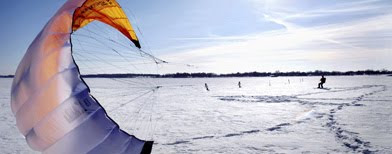
North Pole Ice Set To Melt By Summer 2020
- The frozen Arctic Ocean will be an open sea during the summer 'by 2020', climate experts have warned.
- The frozen Arctic Ocean will become an open sea during the summer within a decade, according to the latest data.
- Climate change experts predict a massive melt which will see the ice cover completely disappear throughout the warmer months.
- British polar explorer Pen Hadow led an expedition to collect the data behind the alarming prediction.
- He told Sky News: "We were able to reach the areas the scientists can't get to. Our findings are depressing.
- In just ten years or so 80-85 per cent of the Arctic Ocean will be ice free, and within twenty years we'll have completely lost the summer ice.
- Hadow and the rest of the Catlin Arctic Survey team faced temperatures of down to minus 45C, and even had to swim part of the 450km journey.
- Using giant drills they measured the depth and age of the Arctic ice.
- Their results, the most recent gathered from the North Pole, show how the region is gradually disappearing.
- Scientists at the University of Cambridge say it is "invaluable evidence".
- Professor Peter Wadhams, head of the Polar Physics Group said: "Up until now we've always thought of the Arctic Ocean as a white lid on top of the planet.
- But now that lid is being lifted and replaced with an open ocean which changes everything. It really is bad news.
- As the ice disappears so too does its wildlife, from polar bears to walrus and seals.
- Moreover, the Arctic sea ice has been described as earth's refrigerator, and as it melts, it is expected to have a major impact on the world climate.
- Campaigners are taking this latest research to the Copenhagen climate conference in December in the hope that the evidence will convince world leaders to take action in cutting carbon emissions.
- Ed Miliband, the Energy and Climate Change Secretary, said the findings set out the "stark realities of a rapidly changing climate" and "illustrated the risk of an ice free summer in the Arctic in the not-too-distant future".
- This further strengthens the case for an ambitious global deal in Copenhagen in December which the UK is fully committed to achieving," he said.
- Dr Martin Sommerkorn, from the WWF International Arctic Programme, warned there was "no time to lose".
- Countries must see these results and think there is no alternative.
- We must deal with the problem and make investments. Humankind and our way of life is at stake.

























